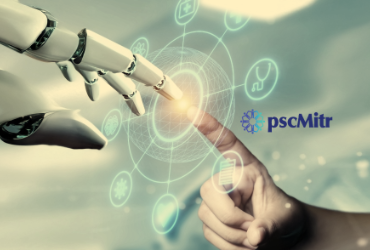Create New Account
A passionate learner transforms challenges into stepping stones for greatness
Or continue with



Artificial Intelligence (AI) is no longer a futuristic concept—it’s a transformative force already shaping industries, lifestyles, and the way we interact with the world. From powering personal assistants like Siri and Alexa to revolutionizing healthcare diagnostics and automating complex financial models, AI is everywhere. But like any technology, it comes with both advantages and limitations.
Let’s explore the pros and cons of AI technology to better understand its potential and the ethical considerations it brings.
AI systems can perform repetitive and time-consuming tasks more efficiently than humans. Whether it’s sorting emails, processing large datasets, or running customer support bots, automation powered by AI reduces human workload and increases productivity.
In fields like medical diagnostics, AI can detect anomalies in X-rays, MRIs, or genetic data with remarkable precision. It reduces the margin for human error and ensures consistency in performance.
Unlike human workers, AI systems do not need breaks, sleep, or holidays. This makes them ideal for industries requiring continuous operation, such as manufacturing, security monitoring, and customer service.
AI excels at analyzing vast amounts of data quickly. In sectors like finance, marketing, and logistics, AI helps make data-driven decisions, identify patterns, and predict trends.
AI algorithms learn from user behavior to offer personalized recommendations—think of your Netflix suggestions or Spotify playlists. This enhances user experience and engagement.
One of the biggest concerns with AI is its impact on employment. As machines automate tasks, some jobs—especially in manufacturing and routine service roles—may become obsolete, leading to unemployment in certain sectors.
Building and maintaining AI systems requires significant investment in hardware, software, and skilled personnel. Small businesses may find it challenging to afford AI implementation.
While AI is excellent at data analysis, it lacks human intuition, emotion, and moral reasoning. In sensitive areas like criminal justice or mental healthcare, relying solely on AI can lead to biased or ethically questionable outcomes.
AI systems rely on huge volumes of personal data. This raises concerns around data misuse, breaches, and lack of transparency in how algorithms make decisions.
If trained on biased or incomplete data, AI systems can reinforce stereotypes and make discriminatory decisions. This has already been observed in areas like facial recognition and recruitment algorithms.
AI is neither a miracle solution nor a threat to humanity—it’s a tool. The key lies in how we develop, regulate, and apply it. As we embrace AI for its many advantages, it’s equally important to address the ethical, social, and economic implications.
Governments, organizations, and individuals must work together to ensure that AI is inclusive, accountable, and aligned with human values.
Conclusion
AI has the potential to redefine how we live and work, offering unprecedented levels of efficiency, insight, and innovation. However, it’s crucial to remain mindful of its limitations and unintended consequences. A balanced approach—focusing on responsible development and ethical use—will help us harness the power of AI for good.